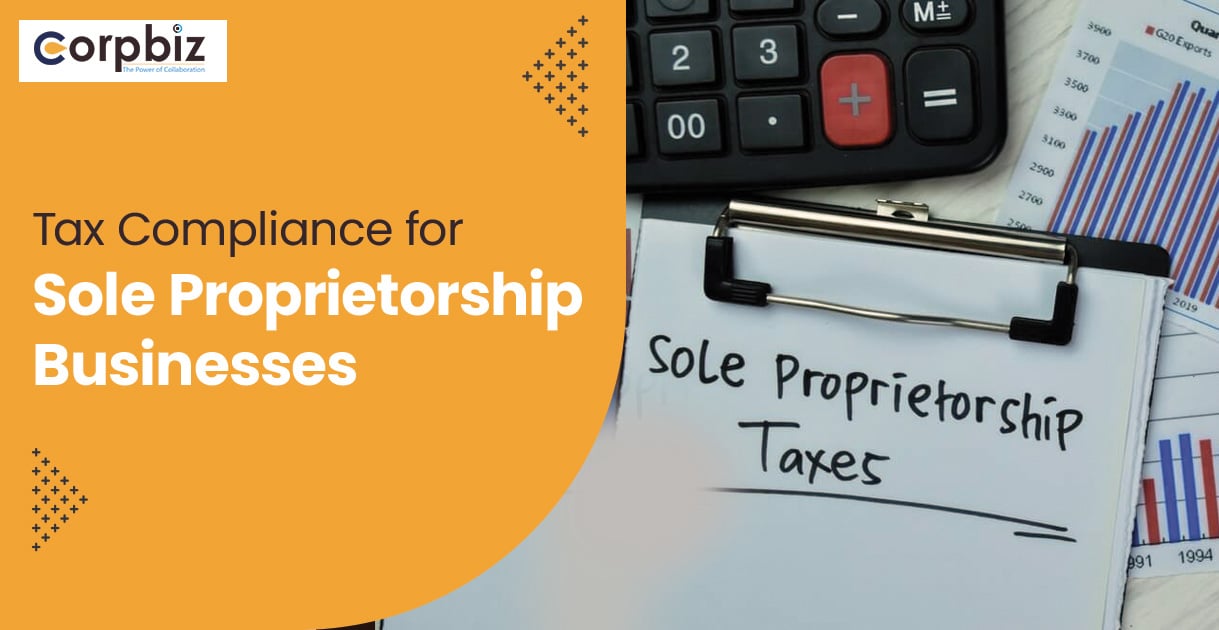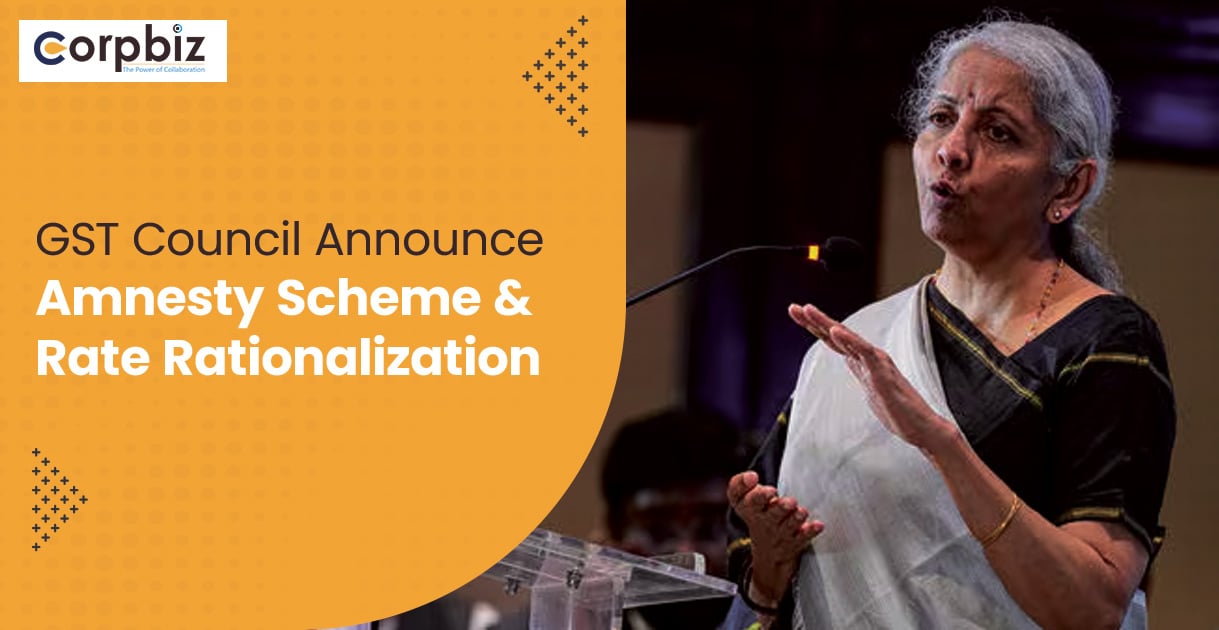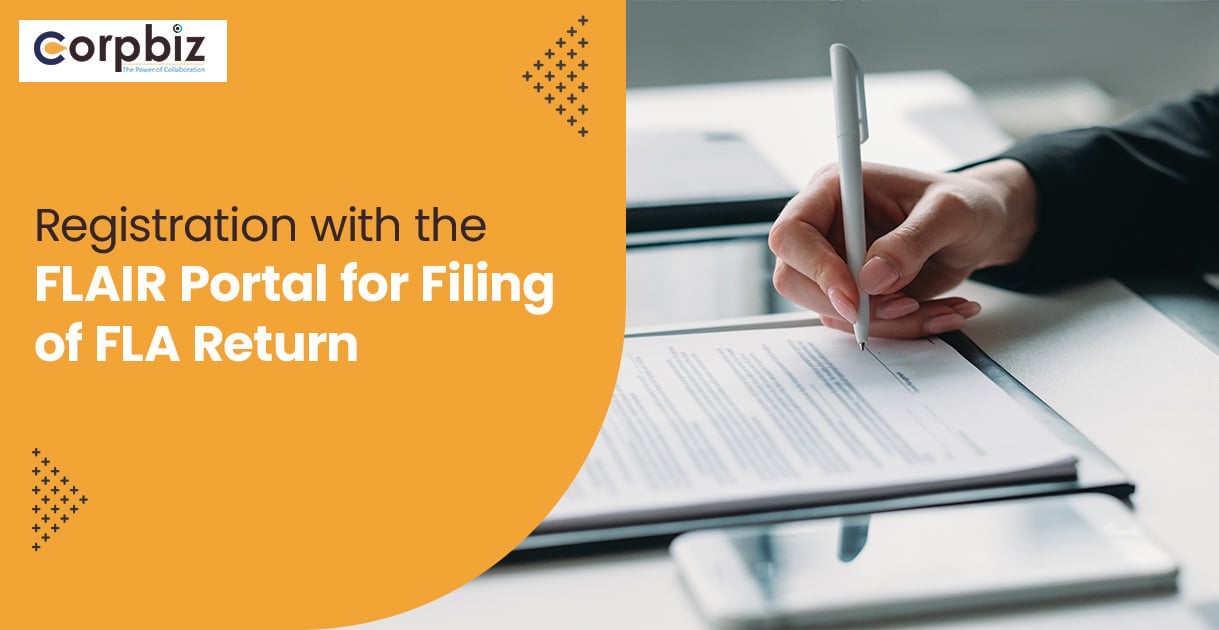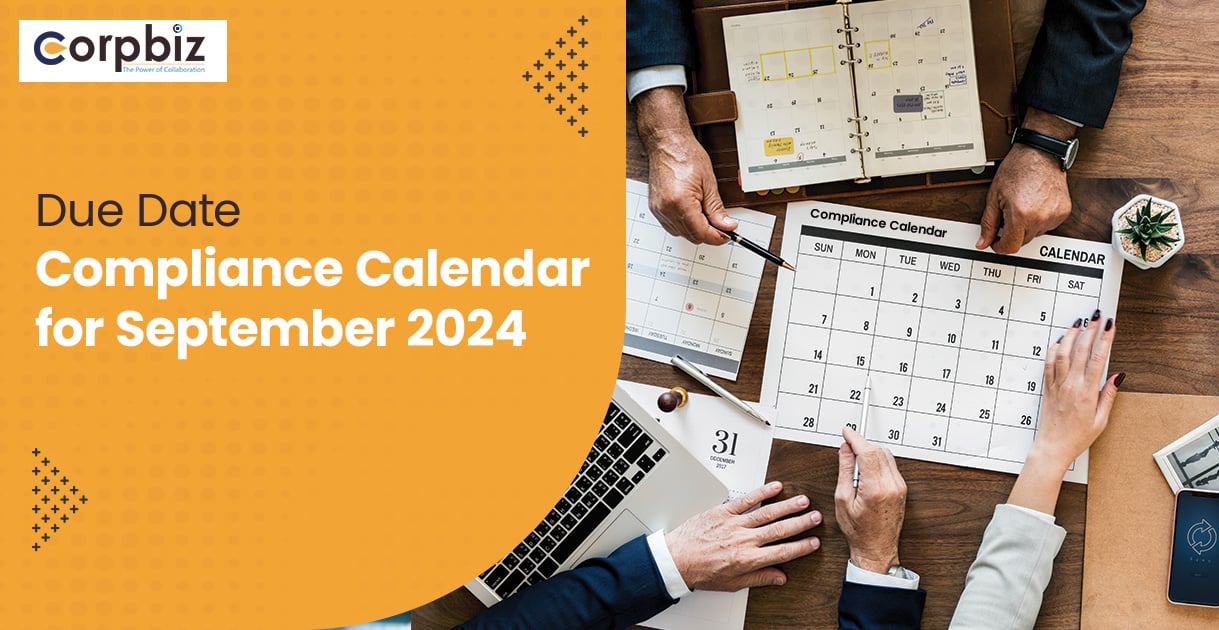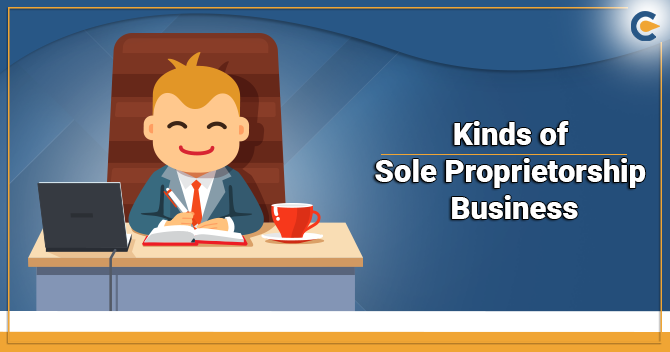A business owned and run by a single person is a sole proprietorship. In India, this is the most prevalent type of company entity. Legally speaking, a sole proprietorship and a proprietor are considered the same entity and have no distinctions. An essential part of managing a sole proprietorship in India is tax compliance. For both legal compliance and financial stability, it is critical to comprehend your tax responsibilities, keep accurate financial records, and comply with filing deadlines. In this post, the main elements of tax compliance for sole proprietorships, such as filing requirements, self-employment taxes, deductible expenses, and registration, will be covered.
Understanding about Sole Proprietorship
A business owned and run by one person is known as a sole proprietorship.
The individual owner is subject to regular taxation rates and reports their income or loss on their tax return. The proprietor must pay self-employment taxes on net earnings from services rendered as an independent contractor (such as those rendered by home-based firms).
Suppose a property (such as real estate used for personal and business purposes) has personal use. In that case, the owner may not deduct business expenses related to that use unless those expenses meet the requirements of Section 274 of the Internal Revenue Code requirements.
The Internal Revenue Service frequently views a person as operating two businesses simultaneously under their sole proprietorship if they manage multiple firms concurrently in separate capacities, such as being an employee of one company and an independent contractor providing services to another.
Even though only one individual owns both businesses in this scenario, the authorities will recognise them as distinct legal entities. As a result, every dollar received by each company will be counted as separate income to determine the amount of taxes due at the end of the tax year.
Understanding Tax Obligations for Sole Proprietorships
In India, the income of a sole proprietorship is regarded as the owner’s income since there is no legal distinction between them. As a sole proprietor, all business revenue and expenses must be reported on your personal income tax return. The following are the central taxes that apply to single proprietorships:
Income tax
Payable on the proprietor’s whole income, including earnings from their firm.
GST (Goods and Services Tax)
Charges apply if your yearly revenue surpasses 40 lac (20 lac in states under specific categories).
Professional Tax
Certain state governments impose a professional tax on occupations, crafts, and employment.
Income Tax Return Filing for Sole Proprietorship
In India, proprietorships are subject to the same tax obligations as their owners. Since a proprietorship is an extension of the owner, it follows a tax system primarily comparable to a person. Proprietorships are subject to the same income tax regulations as individual proprietors.
Like partnerships and corporations, proprietorships must pay taxes according to their income.
Owners and their companies are treated as one entity for tax purposes.
For proprietorships, the income tax filing procedure corresponds with the proprietor’s tax returns. A proprietorship lacks a distinctive tax identification number because it isn’t considered a separate legal organisation. Instead, the proprietorship files tax returns using the Proprietor’s Permanent Account Number.
Income Tax Calculation for Sole Proprietorship
The following calculation can be used to determine the amount of income tax due by a sole proprietor. Net profit is the entire amount of money you have after deducting costs and other deductions from your gross income. Your income tax burden is calculated by multiplying your net earnings by the applicable tax rate.
Sole Proprietorship Tax Rates
In India, the tax rate for sole proprietorships is 30%. Companies with no earnings and less than Rs 1 crore in revenue are subject to 30% corporation tax rates.
The following formula can determine the tax a sole proprietorship must pay: taxable income x applicable rate = total taxes due.
For instance, if your taxable income was Rs 1 lakh and you were paying the appropriate rate of 20%, your total taxes owed would be Rs 20,000 (1 lakh x 20%).
Registering for Taxes as a Sole Proprietorship
The sole proprietors need to register their proprietorship for taxes as per the requirements such as:
1. GST Registration
You must register for GST if your firm’s turnover surpasses the designated threshold. The following are involved in the GST registration process:
- Applying Online: Use the GST portal to apply for GST registration.
Documents Required: PAN card, Aadhaar card, evidence of business address, and bank account information are required.
- GSTIN: A GST Identification Number (GSTIN) will be issued to you upon approval.
2. Professional Tax Registration
If your state imposes a professional tax, you must obtain professional tax registration with the state’s tax agency. States have different requirements for paperwork and registration procedures.
Details of Compliances of Sole Proprietorship Firm
Below is the list of compliance which sole proprietorship firms need to comply:
Income Tax Return
Unless exempt, sole proprietorships must file an annual income tax return each fiscal year. This sole proprietorship firm is also subject to the same income rate as a proprietor.
The Income Tax e-filing gateway allows for the physical or online filing of the Income Tax Return. Forms ITR-3 or ITR-4 can be used by sole proprietorship businesses to file their income tax returns.
- ITR-3 Form
The owner with income must file an ITR-3 Form under the heading “Profits or Gains of Business or Profession.”
- ITR-4 Form
The ITR-4 or SUGAM form is appropriate for sole proprietorship firms with total income up to ₹50 lakh and income from business and profession computed on an assumed basis.
- Income Tax Slab Rate
As previously mentioned, a sole proprietor and a sole proprietorship firm are equivalent in legal terms. As a result, the company will pay income tax at the same rate as an individual owner.
Note:
- Under both tax systems, the rates for SHE Cess, Marginal Relief, and Surcharge are the same and will be applied accordingly.
- A rebate of 100% of income tax, or ₹12,500, whichever is less, is also available to residents whose total income is not more than ₹5,00,000 under Section 87-A of the Income Tax Act. Both tax systems allow this rebate to be available.
TDS Return Filing
When an owner has a valid TAN, they must file a TDS return; the type of return required depends on the deduction’s intended use. Among the TDS Return kinds are:
- Form 24Q: TDS on Salary
- Form 27Q: TDS, where the foreign, non-resident entity is deducted
- Form 26QB: TDS upon payment for the conveyance of real estate
- Form 26Q: TDS in any other case.
GST Return filing
If the total revenue of the single proprietorship reaches Rs. 20 lacs, the owner must register it for GST. According to the GST Act, if the taxpayer is enrolled for GST, they must file the GST Returns.
GSTR-1 and GSTR-3B are the returns that must be submitted for a sole proprietorship business registered with GST. These forms, which are required to be filed either monthly or quarterly, depending on the owner’s plan, include information about inbound and outward deliveries of taxable goods and services as well as tax payments.
EPF Return Filing
If the business employs more than 20 people, the owner must register for an EPF and file an EPF return.
Accounting and bookkeeping
If, in any of the three years prior, the business’s sales, turnover, or gross receipts exceeded Rs. 25,00,000 or its income exceeded Rs. 2,50,000, the single proprietor must keep books of account.
Tax Audit
If a sole proprietorship’s sales, turnover, or gross revenues for the fiscal year surpass Rs. 1 crore, they must conduct a tax audit. In other situations, though, he might have to have their accounts audited.
Note:
- If the proprietor’s cash revenues are restricted to 5% of gross receipts or turnover, the planned rise in the threshold limit for tax audits from Rs. 1 crore to Rs. 5 crore would take effect in the 2020–2021 fiscal year. The Finance Bill 2021 suggests raising this cap for taxpayers using digital transactions from ₹5 crore to ₹10 crore.
Documents to Comply with Sole Proprietorship Regulations
The following paperwork is required for a sole proprietorship to comply:
- PAN Card
- Aadhaar Card
- GST number, if applicable
- Details of sales and purchases
- MSME registration, if applicable
- Bank statements
- Credit card statements, if any
What are the Deductible Business Expenses?
You can lower your tax bill as a sole proprietor by deducting business-related costs from your taxable income. To qualify for these deductions, ensure you have the necessary documentation and that the expenses are directly related to your business operations. Typical deductible expenses consist of:
Rent and Utilities
The price of leasing commercial space and utilities such as water and electricity.
Office Supplies
The cost of furniture, equipment, and supplies for the office.
Travel
Expenses for lodging and transportation associated with business travel.
Salaries and Wages
Pay freelancers and employees salaries and wages.
Professional fees
Fees are the costs incurred by consultants, attorneys, and accountants.
Marketing and Advertising
Business promotion expenses encompassing both offline and internet channels.
Quarterly Estimated Tax Payments
As a sole owner, you must pay taxes on your business income for the entire year. Also, to do this, estimated tax payments are made every quarter. The acts include:
1. Calculate Your Annual Income
Calculate how much you hope to make annually.
2. Determine Your Possible Tax Obligation
Determine your projected tax liability based on your income and the applicable tax rates.
3. Make Quarterly Payments
Pay the estimated quarterly taxes by the deadlines of June 15, September 15, December 15, and March 15 of the following year. After, the tax year, paying quarterly taxes can avoid underpayment penalties and interest.
Understanding Self-Employment Taxes
Self-employment taxes are basically payroll taxes for self-employed people. These levies cover the Social Security and Medicare program contributions, generally divided between employers and employees in conventional employment arrangements. Self-employed people are responsible for paying all taxes due because their employers do not withhold and remit these taxes on their behalf.
How can a Sole Proprietor file their IT return?
A solo proprietor can file his return in a few different ways. They have a choice between the following options:
Online
They can file their paperwork and make tax payments using the Income Tax Department’s official website. If they cannot register on this website, they must go to a certified public accountant (CPA), who will assist them in filing their IT return in exchange for a charge.
Post office
Another option is to send your documentation to one of the post offices the government has established for this purpose in all of India’s main cities and towns. These post offices are beneficial during the tax filing season, typically from July 1 to September 30.
Banks
You can also file your IT return at any bank. These banks guarantee the secure delivery of your income tax forms and guidance on filling them out before returning them via courier services like DHL or FedEx, saving you time when filing these forms after making any necessary changes later.
Date to File a Sole Proprietorship Income Tax Return
The return must be submitted by the 15th of the following month. For example, if an organisation’s fiscal year ends on March 31st, its ITR must be submitted by April 15. Similarly, if the fiscal year ends on June 30, the ITR must be filed by July 15. For monthly returns, the filing deadline is the 15th of the next month, and for quarterly returns, it is the 15th day of the third month following the end of the quarter.
Conclusion
The sole proprietorship is a famous business structure in India. Some benefits of becoming a sole proprietorship include flexibility and inexpensive startup costs.
Apart from these benefits, a sole proprietorship has fairly straightforward tax treatment. Sole proprietorship income tax regulations guarantee that profits are taxed at the same rate as other companies or individuals.
Ensure your sole proprietorship is fully compliance with all tax regulations Visit our website Corpbiz to simplify the tax filing process and get expert guidance on all your tax obligations to secure financial stability and stay ahead of deadlines for GST return filing.
Frequently Asked Question
Which expenses may a sole proprietorship deduct from their business?
Rent, utilities, office supplies, travel, salaries, professional fees, and marketing costs are deductible for single proprietorships. Make sure these costs are accurately recorded and explicitly tied to your company.
What are the dates and conditions for filing taxes as a sole proprietor?
Sole proprietors must file frequent GST returns, professional tax returns, and annual income tax returns (ITR-3 or ITR-4), if applicable. While professional tax returns and GST have different deadlines, income tax returns are due July 31.
Does the sole proprietor have to file taxes?
Since the business is not subject to separate taxes, a sole proprietor must record all business profits and losses on their personal income tax returns.
How do I file my proprietorship’s income tax returns?
ITR 3 and ITR 4 are the forms for filing the proprietorship annual return.
Are there any tax breaks or credits accessible only to those operating as sole proprietors?
A sole proprietorship may deduct expenses from its firm, such as rent, utilities, office supplies, travel, wages, expert fees, and advertising. Certain tax credits, based on investments and business operations, can also be accessible.
How should I handle a tax audit or inquiry as a sole proprietor?
Provide accurate financial records and supporting proof for your income and expense claims in the event of a tax audit or inquiry by seeking the advice and assistance of a tax specialist.
When should the proprietorship return filing ITR 3 be filed?
If the proprietorship business is operated by an individual or by a Hindu Undivided Family, an ITR 3 is provided.
When is a proprietor furnishing ITR 4?
The proprietor provides ITR 4 by the presumptive taxation plan.
Is a Proprietorship taxed twice or double?
The sole proprietorships are not considered independent legal entities from their owners; the proprietor is not subject to double taxation.
When should I get expert tax guidance for my one-person company?
Get expert tax counsel when launching your company, processing complicated transactions, anticipating significant financial changes, or dealing with tax audits and enquiries. Frequent consultations can maximise tax benefits and guarantee compliance.
Is an audit of a sole proprietorship required?
A tax audit is unnecessary for proprietorships because everything depends only on turnover and other factors.
Read Our Article: Converting a Sole Proprietorship into a Partnership



